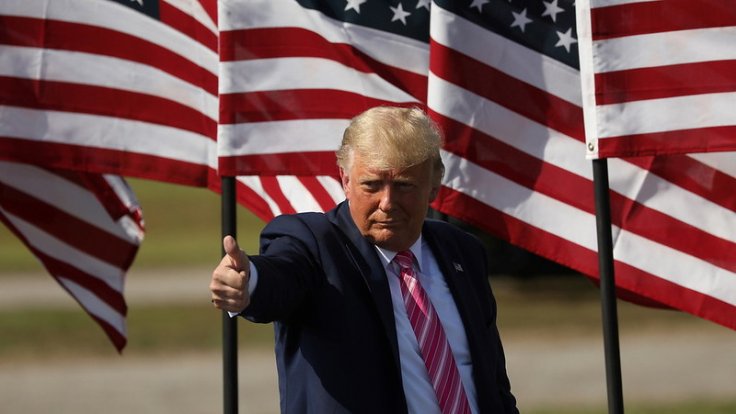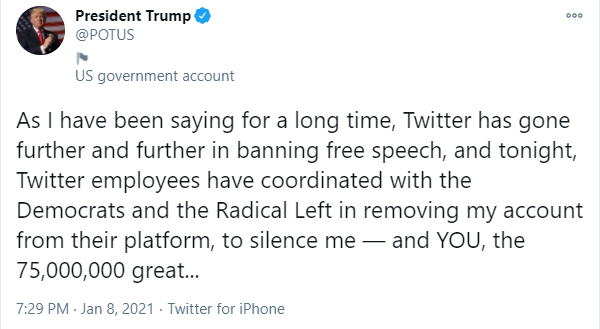After the January 6 violent attack on the US Capitol, many platforms including Twitter, Facebook, Snapchat and others banned President Donald Trump for inciting a mob. But did it change anything? Yes, it did. Researchers noticed a sudden drop in the online spread of election misinformation.
According to findings by Zignal Labs, the online misinformation about the US Presidential election fell by as much as 73 percent just a week after Trump was banned from social media sites. The researchers also found that the conversations regarding unproven election fraud fell from 2.5 million mentions to 688,000 around the social media platforms. This result suggested that tech platforms' move to restrict the spread of conspiracy theories is working.

Monitoring Misinformation
After the Capitol riot, Trump was suspended by Facebook. Then on January 8, he was banned from Twitter. The California based software company, Zignal monitored social media sites for a week since January 9 for misinformation.
It noticed that hashtags related to the Capitol riots dropped dramatically during the time period. Even some popular hashtags like #HoldTheLine, #FightforTrump and phrases like "March for Trump" fell around 95 percent.
Trump and his team made several baseless comments on social media about the 2020 US election. He also pushed false claims that mail-in ballots were fraudulent. Many of his tweets went viral ahead of the election. Even after the election was called for Joe Biden, Trump rejected to concede and bombarded social media platforms with false claims, such as he won the Presidency and the election was "stolen" from him.
First, social media sites tried to flag viral misinformation shared by Trump. Later, he was booted from Twitter and suspended from YouTube, as well as Facebook. But soon another social media platform Parler became the home for Trump supporters. However, it did not last long, as the app was banned by Google, as well as Apple and Amazon took it off from Amazon Web Services.

Trump has not yet found any other platform through which he can share his claims related to so-called election fraud. Although he tried to hijack the official POTUS Twitter account, he failed to spread more rumors, as the company deleted those tweets. The company also suspended the account of his presidential campaign.
The leading argument against the Trump ban was, despite conspiracy theories being spread and fake news becoming viral, the President should be allowed to communicate with the public freely. But the necessity to restrict false claims became more important after Trump's own theories and ideas about the election provoked "Stop the Steal" protesters and caused a violent attack on the Capitol.








